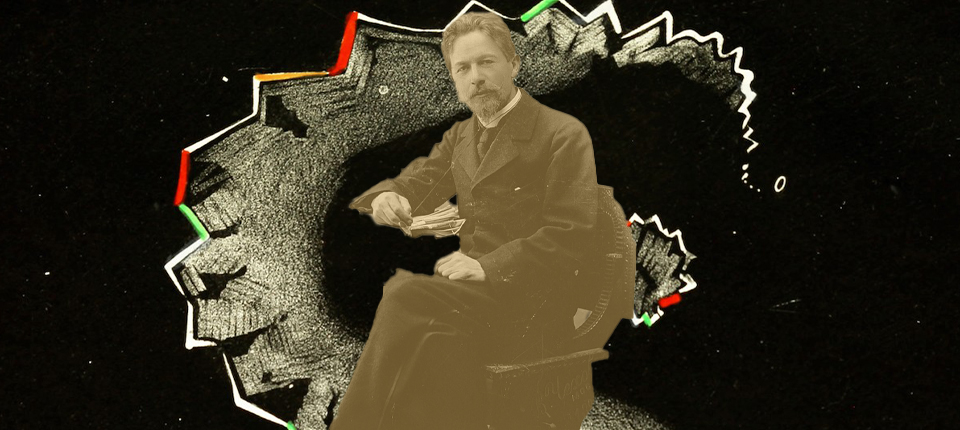Lit Hub Weekly: June 23 - 27, 2025
THE BEST OF THE LITERARY INTERNET

- What AI means for authors, readers, and you: Paul Bradly Carr warns us of the dangers of AI, which he calls “the pinnacle of (lying, cheating, stealing) tech disruption and something novelists have been warning us about for decades.” • Aron Solomon on how the Meta AI copyright decision made libraries sitting ducks for AI plundering. • An open letter against AI from some of your favorite writers to the people who publish them. | Lit Hub Technology
- “In an era where the world’s accumulation of knowledge is instantly accessible on a device that fits in your pocket, I am forced to seek illicit medical triage in the back of a beauty salon.” The impossible costs of being undocumented and ill in America. | Lit Hub Politics
- From bookworm to slush, David Crystal explores the unlikely etymologies behind some popular bookish phrases. | Lit Hub History
- “Transgression doesn’t always equal transcendence and liberty isn’t always found in the libertine.” Ed Simon on why fascism seduces writers. | Lit Hub Politics
- Anderson Tepper revisits Amos Tutuola’s The Palm-Wine Drinkard, a novel that “played no small part in broadening the possibilities of African literature.” | The New York Times
- “Something fascinating occurs if you start to think how the biosphere, as a total system of interactions between lifeforms and their habitats, is also like the inside of a dreaming head.” Timothy Morton considers the connection between our mental and ecological health. | The MIT Press Reader
- Anslem Berrigan reflects on the legacy of his mother, Alice Notley. | Interview
- “How many worlds can a garment inhabit at one time?” Cori Winrock on Emily Dickinson’s dresses on the moon. | The Paris Review
- “I was targeted for writing honestly about what was in front of me—the same thing I’m doing now.” Alistair Kitchen writes about how reporting on the Columbia protests led to his deportation. | The New Yorker
- Erin Evans considers oral history as anti-capitalist storytelling. | Full Stop
- Novelist Andrew O’Hagan takes on the Joan Didion industrial complex. | London Review of Books
- “Contrary to the more exciting idea that an army of DEI warriors has forced men to the sidelines, what’s really happening is that, in response to historic declines in literature’s value, the industry has itself become a site of more contingent and more precarious work that is more often done by women.” Sarah Brouillette on what’s really behind the plight of the white male novelist. | Defector
- Emma Copley Eisenberg explores the legacy of Dorothy Allison. | Harper’s Bazaar
- Would you enjoy a Great Gatsby boat tour, a 90-minute cruise around Manhasset Bay to explore East Egg and West Egg? | New York Times
- Jeremy Gordon explains why he, a man, reads fiction (and no, it’s not to build empathy). | The Atlantic
- “It takes a certain audacity to invoke international law while one is endorsing a thoroughly documented genocide.” Mary Turfah on the airstrikes on Iran. | Los Angeles Review of Books
- Jessica George explores the evolution of children’s science lit. | JSTOR Daily
- What is ChatGPT doing to our brains? Kyle Chayka considers the evidence. | The New Yorker
Also on Lit Hub:
Leila Mottley on how to write authentic fiction about a place you’ve never been • Benjamin Hale remembers his mentor William Melvin Kelley, a Black avant-garde novelist who experimented with language and narrative • Matthew Clark Davison and Alice LaPlante on the importance of getting lost in your writing • The best book covers published in June • Recommending the literary film and TV you need to stream in July. • Ten new audiobooks out in July • Dwyer Murphy recommends five uncanny literary mysteries set in coastal Massachusetts • James Rebanks on rediscovering hope for humanity on Norway’s remote northern coast • Nicola Wilson on one of the forgotten great literary citizens of the 20th century. • Keridiana Chez on work, technology, and consumerism in the world of Harry Potter • Five book reviews you need to read this week • What The Great Gatsby’s can tell us about the absurd fiction of legal equality in America • On one of America’s earliest modern school shootings in Olean, New York • How Mexican feminists fought for reproductive freedom at home and throughout the world • How the Hays Code took the sex out of Hollywood • Pamela Newton examines the impact of Sarah Ruhl’s play Eurydice • Hal Ebbott on writing a novel of male friendship • Fran Littlewood recommends tales about sisters • On the “female realism” of M.F.K. Fisher’s interwar food memoir, The Gastronomical Me • Alice Bolin on the late 20th century despair of Sex and the City • Why Brendan O’Meara’s favorite kind of biography is unauthorized



















